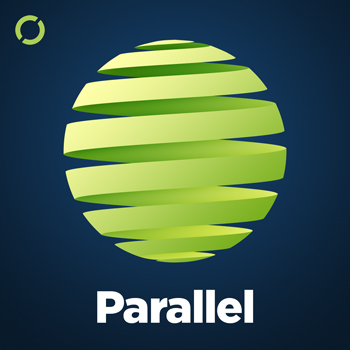Latest Episodes
#83: AI, AI, IO
May 23rd, 2023 · 59 minutes
Taking a look back at this year's Google I/O events, with an eye toward accessibility. Our favorite followers of the Goog are back! We talk AI, Android, Pixel phones and tablets, and how Google does its spectacle.
#82: Entirely Individualistic Low-Vision Girl
May 18th, 2023 · 78 minutes
This week, Apple previewed accessibility features coming to the Mac and iOS. It's an annual event, which is cool. Want to know more about what Apple discussed and how these new features fit in with the existing accessibility suite? We've got you!
#81: Tools and Tips for Mobile App Developers
April 25th, 2023 · 48 minutes
iOS developer Rob Whitaker returns to Parallel for a chat about APIs and tools developers can use to make their mobile apps more accessible.
#80: When Success Means Buying A Smaller Suit
April 11th, 2023 · 43 minutes
We're talking about Apple's fitness offering from an accessibility perspective with a Fitness+ user, and someone who has worked on Apple accessibility teams.
#79: Story Book
March 29th, 2023 · 27 minutes
Ten iOSes ago, I wrote a book called iOS Access for All. Here's how it has evolved over the years.
#78: So Many Thoughts and Feelings
March 14th, 2023 · 83 minutes
AppleVis, an excellent community of blind and visually-impaired Apple users, surveyed its members to get their thoughts on how well Apple's platforms provide accessibility. We talk over the survey, and add some impressions of our own.
#77: What is CSS Speech?
February 15th, 2023 · 36 minutes
What if you could design the experience of listening to Web content in the same way you design the visual experience? That's the premise of the CSS Speech Module. Is CSS the way to design spoken experiences, or is it a hindrance for screen reader users?
#76: Some of My Automations are Fragile
October 26th, 2022 · 67 minutes
We're talking automation - mostly on macOS, with developer Bret Terpstra and fellow automation fan Darcy Burnard.
#75: A Deep Dive into WCAG 2.2. And Beyond.
September 27th, 2022 · 62 minutes
The W3C's Web Content Accessibility Guidelines – WCAG – is the standard against which Web developers test for accessibility. WCAG is evolving, with a new release anticipated in a few months. We talk about what the 2.2 candidate includes, and what's next.
#74: The Swipey on the Stem
September 14th, 2022 · 69 minutes
Parallel is back from summer break, and glad to be!
We gather to review Apple's latest hardware announcements: do we like them, do we want them, are they accessible? Behold, the iPhones 14, Apple Watch Ultra (and otherwise), and AirPods Pro, 2nd gen.

